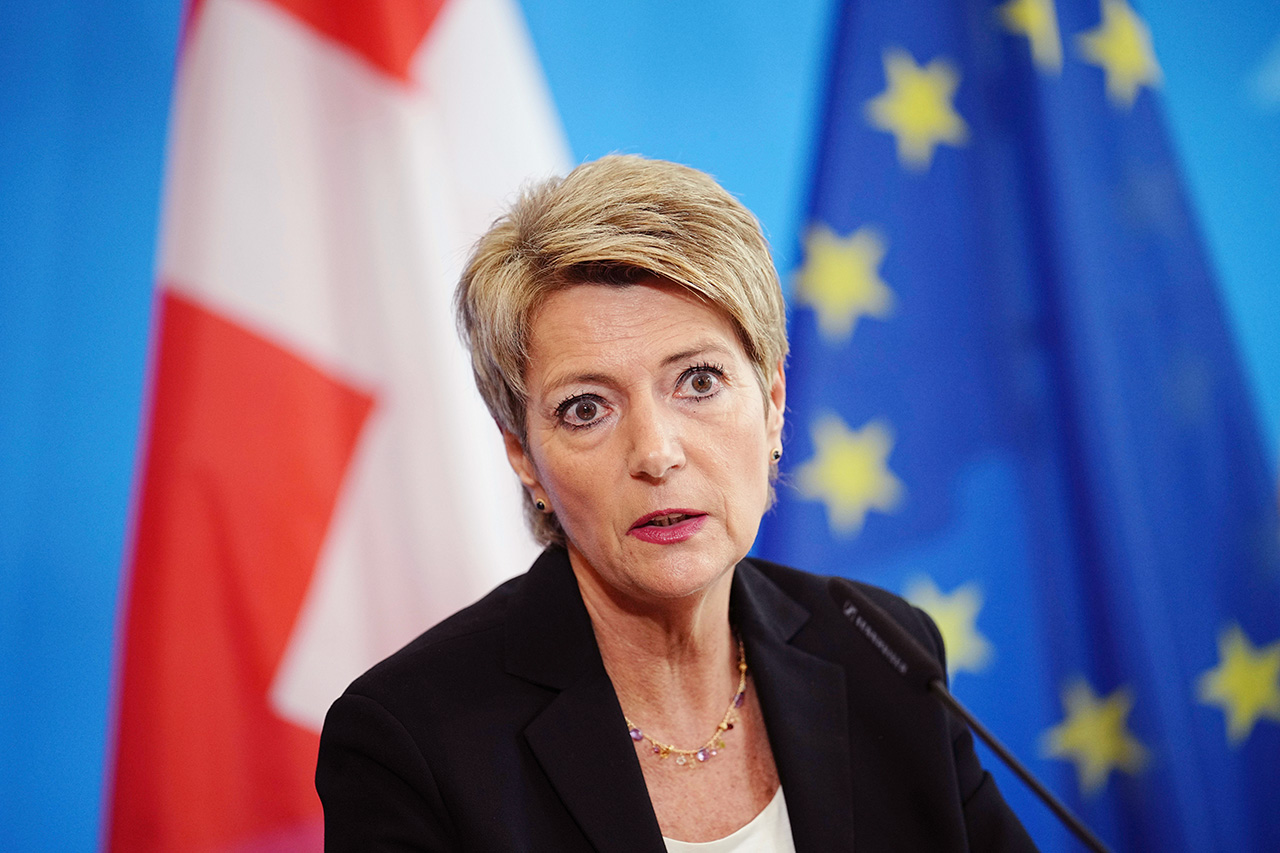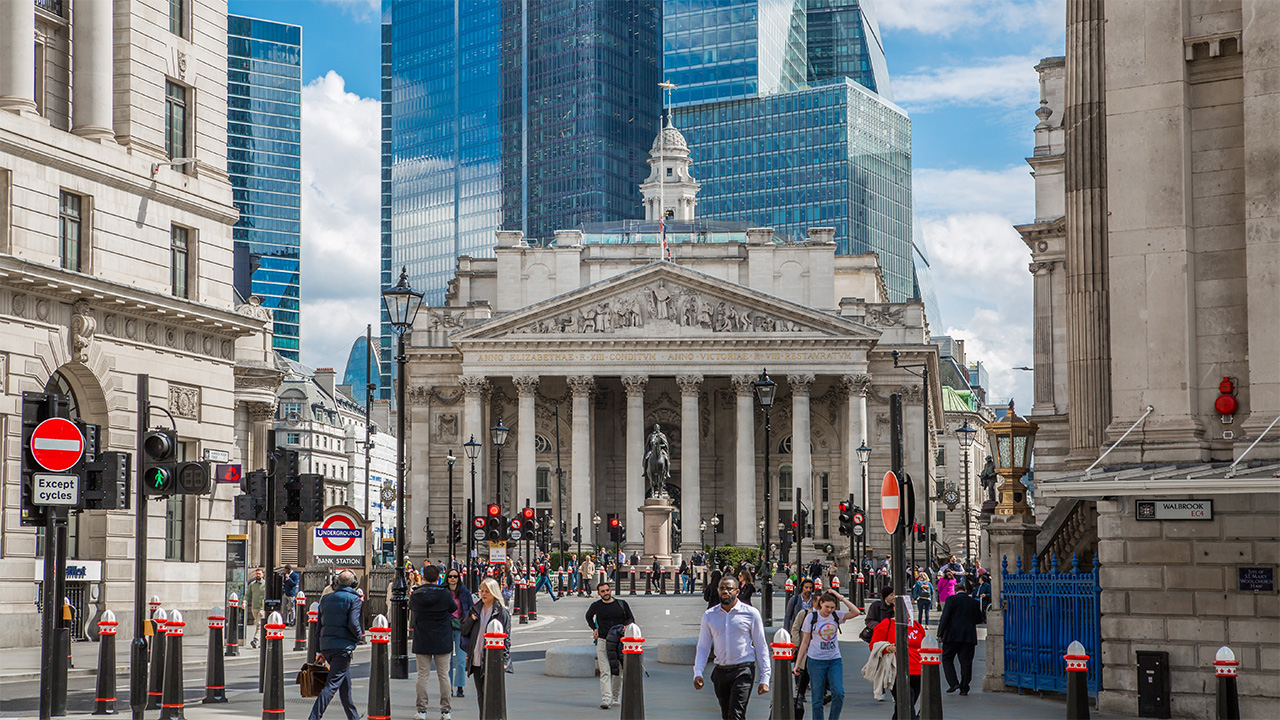Why Switzerland’s isolation is costly, a top table in Helsinki and Turkish architect Emre Arolat.
|
Friday 8/8/25
|

|
|
London
Paris
Zürich
Milan
Bangkok
Tokyo
Toronto
|
|
|
|

Good morning from Midori House. For more news and views, tune in to Monocle Radio. Here’s what’s coming up in today’s Monocle Minute:
THE OPINION: London’s late-night flirtation
GEOPOLITICS: Has Switzerland’s isolation from Europe cost it dearly?
DAILY TREAT: Grab a table at a sophisticated Japanese restaurant in Helsinki
FROM MONOCLE.COM: Emre Arolat’s solution to architectural déjà-vu
|
|
The Tate “Lates” return – an alarming reminder that London’s nightlife is fast asleep
By Robert Bound
|

|
Whoa, there! Steady on! London’s Tate Modern has only gone and extended its weekend opening hours and I already feel as though I’m in a deliciously weird fever dream of a night in which art, life, bodies and sensations are mixed into a dizzying trance. The breathless rush of raving in the Turbine Hall, a giggling fit in a mirrored elevator, a restorative rendezvous behind a great limb of industrial architecture, a last tearful gasp on the balcony while gazing at that panoramic view of the city – oh, to be alive! Alive at… Hang on… 21.00?
Well, perhaps it’s a start. From the end of September, safely away from summer’s clutches, Tate Modern will close at 21.00 on Friday and Saturday evenings. It’s a reclamation of pre-pandemic opening hours – and this is after a few wild summer nights when the institution shut at 22.00. I mean, it’s understandable: any later and the gallery would doubtless be dispatching spiral-eyed art lovers into the seamiest of urban underworlds, where people are still ordering their main courses, half an hour into Superman at the Picturehouse or, say, leaving that notorious den of iniquity, the All England Lawn Tennis Club at Wimbledon, where play might just have stopped for the day and ladies in strawberry-themed hats are checking the train times to Godalming.

Bright spot: Tate Modern
I know. Tate Modern is a successful museum tentatively embracing the evening, not a failed Berghain. We shouldn’t confuse one with the other. But it begs a hoary old question: what is it about London and late nights? Have we become scared of the dark? Last September the Night Time Industries Association found that 37 per cent of UK nightclubs had closed since 2020, a figure surely linked to the coronavirus pandemic but probably also related to young people falling out of love with having a drink. Another survey looking at the period from 2011 to 2021 found that 38 per cent of people aged between 16 and 24 hadn’t had a single alcoholic drink in a year. Are those former “youngsters” – now surely in their forties – generally abstemious? Is it all dungarees and self-actualisation? After all, there are quite a few ways of relaxing of a weekend that aren’t related to boozefulness but neither are they much to do with mindfulness. The dark web? It certainly isn’t afraid of the dark.
Back in 2003 the UK passed the Licensing Act, which the then-prime minister, Tony Blair, hoped would promote a European-style all-hours café culture (but was demonised in the press as an invitation to binge-drink 24/7). A decade later, however, it emerged that UK alcohol consumption had dropped 17 per cent since then. Businesses had smaller takings over longer nights, which now required Swat-team-like extra security. The law, it seemed, had ended up promoting a more Soviet-style café culture. Bread queues and babushka scarves all round!
Flippancy aside, London’s late-night problem has long been officially acknowledged. The position of Night Czar, originally inaugurated in Amsterdam, was much discussed, mocked and finally supported. Amy Lamé was installed in the post in 2016 and quit last year after a tenure that saw almost half of London’s nightclubs close. Again, this was partly because the P-word had wreaked its havoc. But in the end you’d probably expect someone whose job it was to help nightlife out of a major rut to have achieved more. How fortunate that her surname featured that accent on the “e”.
By contrast, the art world has been putting on the 21st century’s best parties. London in Frieze week is still a bit like Miami when Art Basel first rocked up or even Mexico City when it launched the Jumex Collection.London was taking all that Damien’n’Tracey excess to the bank but it was also learning, dealing, scribbling down phone numbers, jotting quotes, making a mint. It was working. And in the art world, the commercial and the institutional have never been closer – so maybe the wrong side is in charge of the outreach and party planning. In the meantime, we’d better get started early. I’ll see you in the bathroom: I’ve got a nice little bag of matcha-latte powder that’ll blow your mind.
|
|
Geopolitics: switzerland
Donald Trump’s tariffs test the limits of Swiss exceptionalism
Two countries outside of the EU have suffered wildly different fates in their negotiations with the Trump administration (writes Christopher Cermak). The UK reached a deal with a baseline tariff of 10 per cent, better than the EU’s 15 per cent rate, while Switzerland is among those without a deal at all. Switzerland’s president, Karin Keller-Sutter, was caught unawares by Donald Trump’s reported dismissiveness during a phone call last week. Following their conversation, the US president announced a 39 per cent tariff on the country, prompting a Swiss delegation to fly to Washington for last-minute negotiations aimed at reducing the damage. “It shows the power dynamics at play,” Florian Egli, a professor and academic at ETH Zürich, told Monocle Radio’s The Briefing. “Trump and his office don’t seem to care much about a little country on another continent.”

Starry eyed: Karin Keller-Sutter
Switzerland has rarely pushed to join the EU. But in an age of great power competition, particularly between the US and China, it might be time for the country to consider closer alignment with the 27-nation bloc. A treaty to reset EU-Swiss relations, negotiated late last year, is headed for a national referendum. Regardless of a renegotiated tariff deal, support for a deeper relationship with the EU is likely to grow.
|
|
• • • • • daily treat • • • • •
Nab a seat at Shii, Helsinki’s subtly sophisticated new Japanese restaurant
Tucked away in a courtyard near Kasarmitori square, Shii doesn’t make much of an impression from the street. But step inside and the atmosphere shifts as your eyes adjust to the low light. The space is dark and composed, with a long, solid oak barand soft overhead lighting. Though the restaurant sources its ingredients from producers across the world, the kitchen’s approach is rooted in Japanese tradition.
Fish such as Spanish sea bass, Atlantic golden-eye snapper and Japanese hamachi are dry-aged in-house and served alongside locally sourced vegetables. Shii’s philosophy is about restraint, not purism. “We want people to slow down the moment that they walk in,” says chef Nadim “Nadi” Nasser, who opened the space with the backing of Helsinki’s Financier Group, the team behind the Palace and the Alvar Aalto-designed Savoy. “There’s a lot of noise in the world. We try to offer something quieter.”
shii.fi
|
|
From monocle.com: turkey
Meet the Turkish architect making buildings that speak to the present in new ways
Celebrated Turkish architect Emre Arolat has dodged a fate that has plagued numerous architects and creatives: repetition (writes Andrew Tuck). His architecture studio, Emre Arolat Architecture (EAA), delivers projects in sectors from hospitality to transportation, which delight and amaze but also challenge what has come before. “You see a building in Bilbao or in New York and you can clearly identify who it is by,” says Arolat. “But there is another way of doing architecture – one that emphasises context and looks to engage more deeply with the environment and the distinctive qualities of a place. I am on the second path. Not creating an object of desire every time but understanding the specific tendencies and memories of a location.”

No stone unturned: A covered walkway at Sancaklar Mosque provides a sense of calm
Monocle met Arolat at the recent Abu Dhabi Infrastructure Summit – his Istanbul-based practice works widely in the region – to record an interview for Monocle Radio’s The Urbanist. The scheduling at these events is packed and things tend to move quickly. Yet, in our radio booth, the pace slowed as Arolat began to explain his philosophy: a way of working that has delivered many wins but has still left him questioning things. It was one of those interviews that settles on you.
Our conversation moved on to one of the architect’s best-known projects, the Sancaklar Mosque, which was completed in 2012 and sits on the western edge of Istanbul in a prairie-like landscape. But let go of any preconceptions about what a mosque might look like – just as Arolat himself did.
This piece first appeared on monocle.com. Click here to read it in full. And, if you want to meet Arolat in person, you can buy a ticket to Monocle’s Quality of Life Conference, where he will join us to explain how to deliver new ideas and avoid cookie-cutter solutions.
|
|
Monocle Radio: The urbanist
Earning the commute – how do we get city centres humming again?
We chair a roundtable conversation on the future of the office and how good design can bring people back to our city centres.

|
|
Newsletter:
Join us
Welcome to our world
Has this been forwarded to you
by a friend? Sign up to The
Monocle Minute and Monocle
Weekend Editions to receive your
own bulletin of weekday news and
weekend treats.
| | |